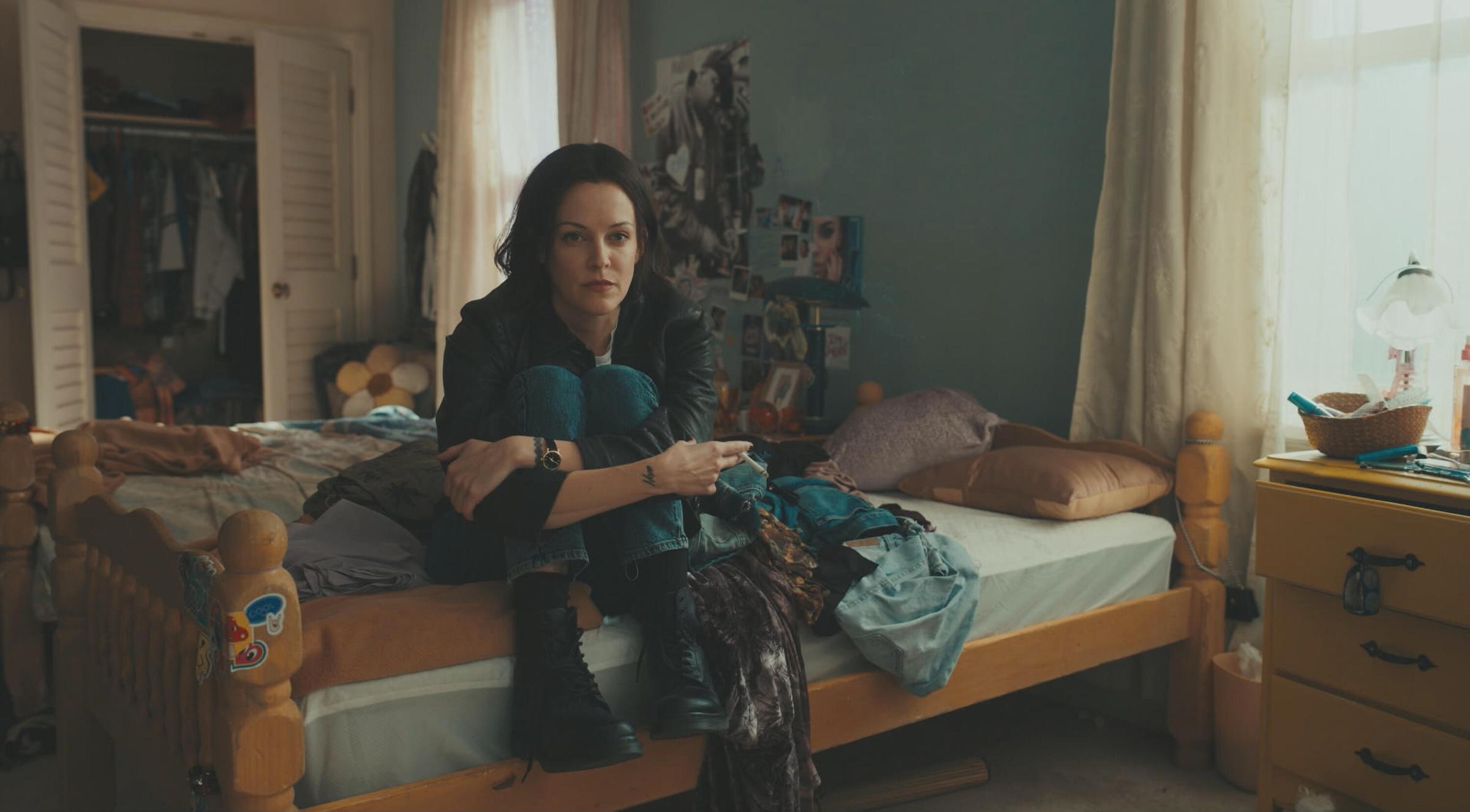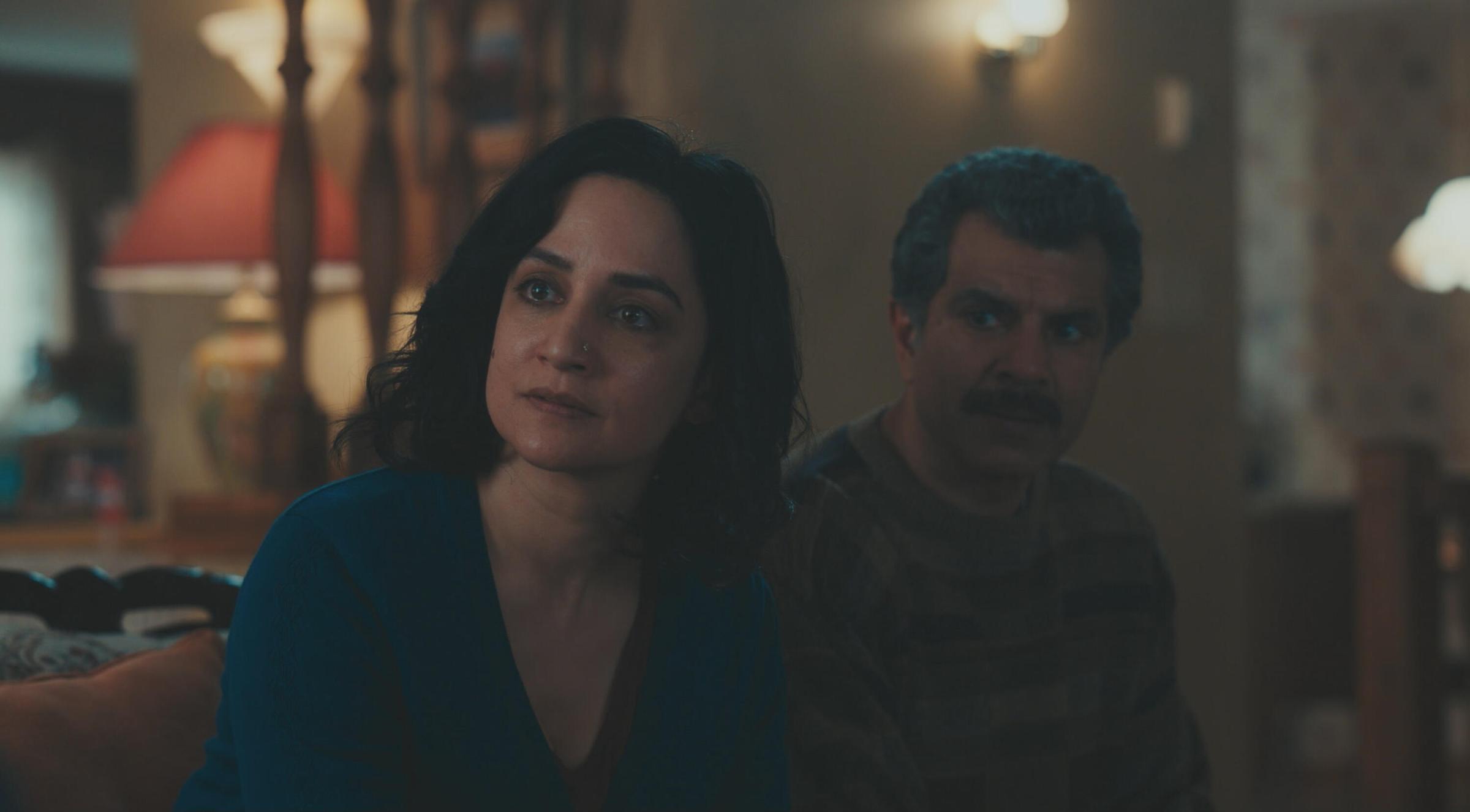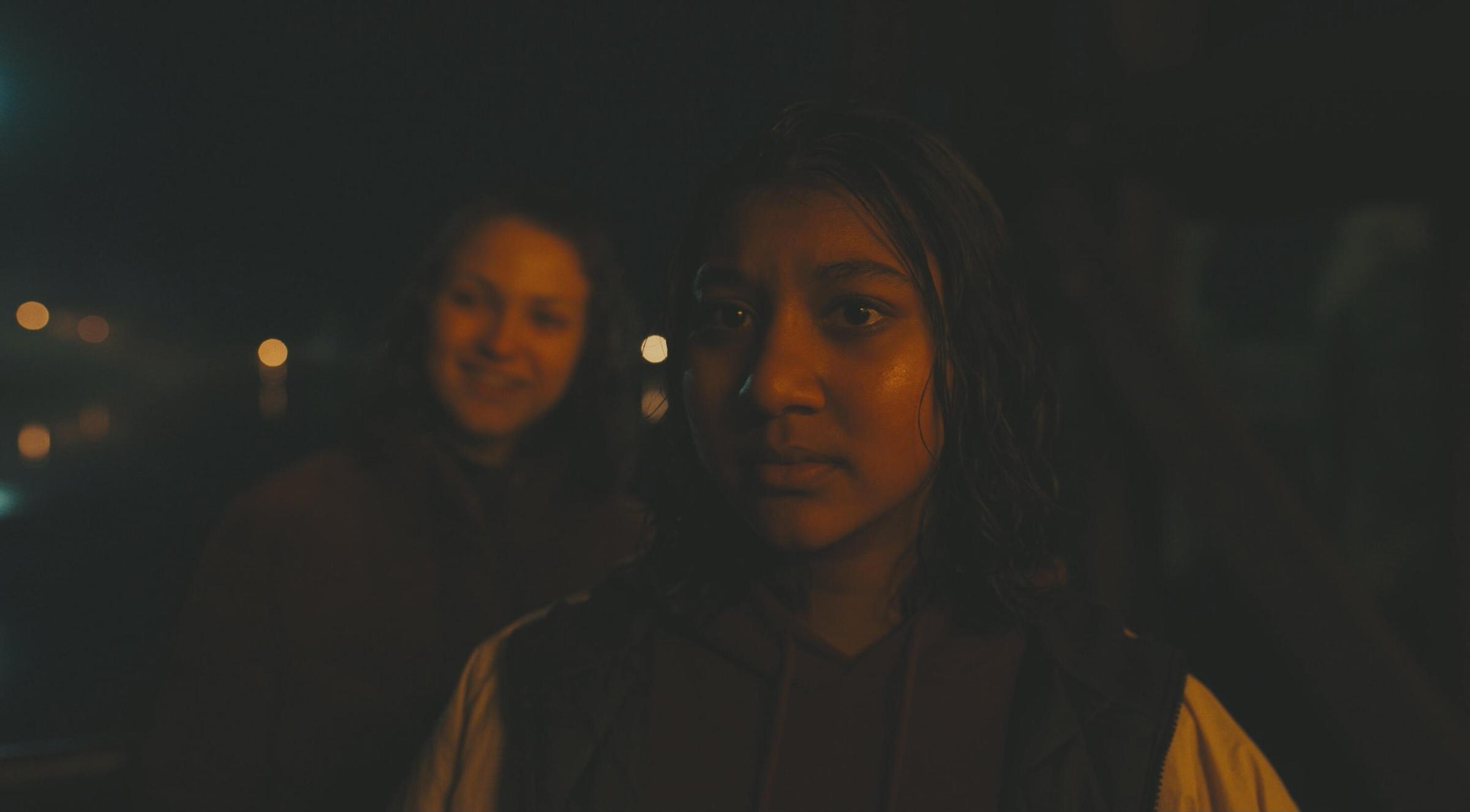There are so many cop shows. So many murder shows. So many shows about innocent dead girls who turn out to be less innocent than they looked. Most are pointless wallows in the suffering of others, real or fictional. A precious few—Twin Peaks, Sharp Objects—transcend the clichés of an overplayed genre through artful storytelling and thematic depth. Hulu’s Under the Bridge, premiering April 17, doesn’t reach the latter series’ heights. But thoughtful, empathetic writing and excellent performances make it more than just another dead-girl show.
On the evening of Nov. 14, 1997, 14-year-old Reena Virk joined a gathering of teens near a bridge in Saanich, British Columbia and never came home. Under the Bridge adapts, with some creative license, the true-crime book about Reena’s case by Rebecca Godfrey, played in the series by executive producer Riley Keough. A writer who grew up in the area but hasn’t visited in years, for reasons that seem related to her brother’s death when they were kids, Rebecca is here to research a book she’s calling Victoria Girls. She starts poking around the local girls’ group home, Seven Oaks, just in time to get the scoop on Reena’s (Vritika Gupta) disappearance.

Hers is just one of many perspectives through which the show filters the crime. Killers of the Flower Moon Oscar nominee Lily Gladstone co-stars as Cam Bentland, a young cop working the case alongside her adoptive father, Roy Bentland (Matt Craven), a police chief with a habit of cutting corners and intimidating witnesses in order to achieve his desired results. Cam, who is Indigenous and spent part of her childhood at Seven Oaks, dreams of escaping this insular community through a transfer to Vancouver—one she’d be more likely to receive after cracking a high-profile case like Reena’s. Two of the frenemies Reena met up with at the bridge, Josephine Bell (Chloe Guidry) and Dusty Pace (Aiyana Goodfellow), live at Seven Oaks. Jo is the charismatic, mercurial queen bee, a girl obsessed with John Gotti and gangsta rap. Her best friend Kelly Ellard (Izzy G.) rounds out the pseudo-gang they’ve dubbed “Crip Mafia Cartel.”
Under the Bridge also spends plenty of time with the Virks, Jehovah’s Witnesses of Indian descent who are rocked by their daughter’s rebellion long before she vanishes. Reena fights constantly with her austere, religious mother, Suman (Archie Panjabi). After girls at school bully Reena for having hairy legs, Suman walks in on her shaving and declares that caring about something as worldly as what other kids think amounts to “paganism.” Under the Bridge creator Quinn Shephard (Not Okay) makes nuanced use of the Virks’ hybrid identities, contrasting the specific tensions within the household with the blunt prejudices they face in the community where Suman’s side of the family has lived for three generations. The series so effectively establishes this dynamic in the present that an episode devoted largely to tracing Reena’s roots, from her grandparents’ arrival in British Columbia to her parents’ courtship, feels redundant.

It isn’t the only instance where the show gives viewers too much information—perhaps in a well-intentioned attempt to do justice to the true story or the book by Godfrey, who died in 2022. It makes sense, for example, that Cam and Rebecca, who must now collaborate to uncover the truth, grew up together and have a complicated history. But Cam’s own backstory, with her father, has enough details and twists to fuel a miniseries of its own. And the timing of Rebecca’s return to her hometown, with a manuscript that couldn’t be more relevant to Reena’s case, reads as contrived. Under the Bridge can get goofy, too, in its depictions of the author at work. Watching her speak full paragraphs of grandiose prose into a recorder, it’s hard not to cringe.
Fortunately, the show is compelling enough to overcome an occasional silly moment. So many crime dramas from the past decade repeat the same pat takeaways about how race and class intersect with criminal justice systems, but Shephard avoids broad generalizations. She is alert to the specificity of not just Reena’s background, but also the diverse experiences of every other character caught up in her story. Stereotypes turn out to be red herrings, for investigators as well as viewers. Shephard is perceptive, too, about the way discrete social groups interact among themselves: small-town police, parents of various racial and socioeconomic statuses, teenage girls who think they’re tougher and meaner and more gangster than they really are.

The acting is even better than the writing. Gladstone’s Cam conceals a lifetime’s worth of anger—about her own upbringing, about her perennial outsider status—beneath an impassive exterior. Keough makes a wonderful morally questionable journalist, who manipulates Jo and drops acid with teen burnouts, in part because she still has yet to get over her own sullen goth phase but also because she convinced herself, back when she was the suspects’ age, that she is a bad person. The younger actors are just as remarkable. Guidry’s Jo is the kind of girl everyone has met, magnetic and terrifying at once. She’s the sun that Reena, Dusty, and Kelly revolve around, each in her own utterly convincing way. Euphoria’s Javon “Wanna” Walton brings empathy to the difficult role of their friend Warren Glowatski. Through these performances, Under the Bridge subverts our assumptions to make a powerful distinction between what people say, what they do, how they’re perceived, and who they really are.
More Must-Reads from TIME
- Caitlin Clark Is TIME's 2024 Athlete of the Year
- Where Trump 2.0 Will Differ From 1.0
- Is Intermittent Fasting Good or Bad for You?
- The 100 Must-Read Books of 2024
- Column: If Optimism Feels Ridiculous Now, Try Hope
- The Future of Climate Action Is Trade Policy
- FX’s Say Nothing Is the Must-Watch Political Thriller of 2024
- Merle Bombardieri Is Helping People Make the Baby Decision
Contact us at letters@time.com